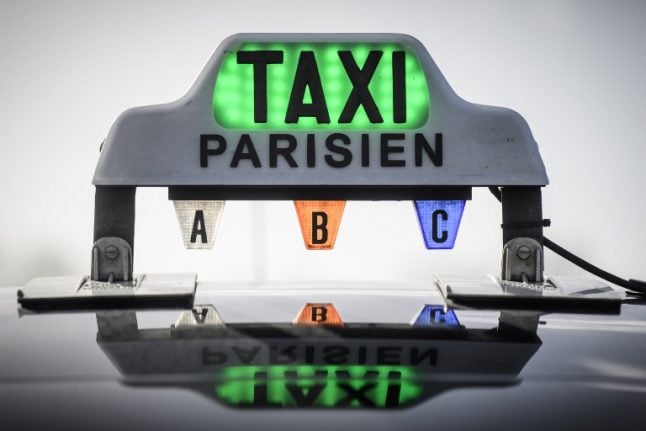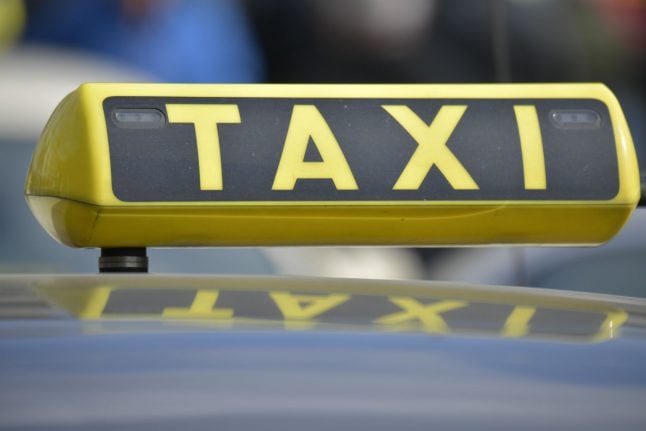 Photo: AFP
Photo: AFP
TAXIS
The taxi rates you can expect to pay in France in 2019
A list of this year's official taxi prices has been published in France, revealing how much you should be coughing up for a cab journey wherever you are in the country in 2019.
Published: 9 January 2019 08:46 CET

Photo: AFP
The national list shows that the minimum you can expect to pay for a taxi ride in France is now €7.10, which includes extras such as the fee for when the taxi is stuck in traffic.
This year, Toulouse airport in the southern Occitanie region has introduced new standardised pricing for journeys into the city like the ones already rolled out in other popular destinations such as Paris, Cannes and Nice.
The new taxi rates, which will kick in by February 1st, will see prices increase by 1.4 percent, with fees capped at the following rates:
READ ALSO:
A minimum charge of €4.10 will already show on the metre when you get into the vehicle.
If there are more than four of you getting into the cab, there will be an extra fee of €2.50 (€4 in Paris) and the driver can also add an extra €2 per person if they have heavy or large luggage.
There is a minimum charge of €1.10 per kilometre travelled.
This can rise by up to 50 percent for journeys at anti-social times, such as at night and by 100 percent for journeys that would force the taxi driver to make a return with no passengers or in bad weather conditions, such as in snow or ice.
The price could also rise by 100 percent if the driver needs to use snow tires to make the journey.
If you book a taxi and ask the driver to wait, you will be charged a maximum of €36.73 per hour.
And if you book a taxi you may find that prices go up, depending on the city. Paris taxis can charge €4 for immediate bookings and €7 for advance bookings.
While in Nice, both immediate and advance bookings can cost €4 each and in Cannes that drops to €2.
Similarly in Lyon, immediate bookings will set you back €2 and advance bookings by €4 while in Toulouse, you may be charged €3 for immediate and €7 for advanced bookings.
Taxis in all other towns can charge €2.50 for the fifth passenger and above and €2 per bulky piece of luggage.
Standard airport fees have also been published, including from Paris-Orly and Paris-CDG, as well as Nice and Toulouse-Blagnac airports, with the updated fees coming into force from March 1st at the latest.
Paris
Paris-CDG to Paris right bank: €50
Paris-CDG to Paris left bank: €55
Paris-Orly to Paris right bank: €35
Paris-Orly to Paris left bank: €30
Nice/Cannes
Nice-Côte d’Azur to Cannes: €80
Nice-Côte d’Azur to Monaco: €90
Nice-Côte d’Azur to central Nice: €32
Toulouse
Toulouse-Blagnac to Toulouse zone 1: €15
Toulouse-Blagnac to Toulouse zone 2: €25
Toulouse-Blagnac to Toulouse zone 3: €35
Toulouse-Blagnac to Toulouse zone 4: €45
Url copied to clipboard!


 Please whitelist us to continue reading.
Please whitelist us to continue reading.
Member comments